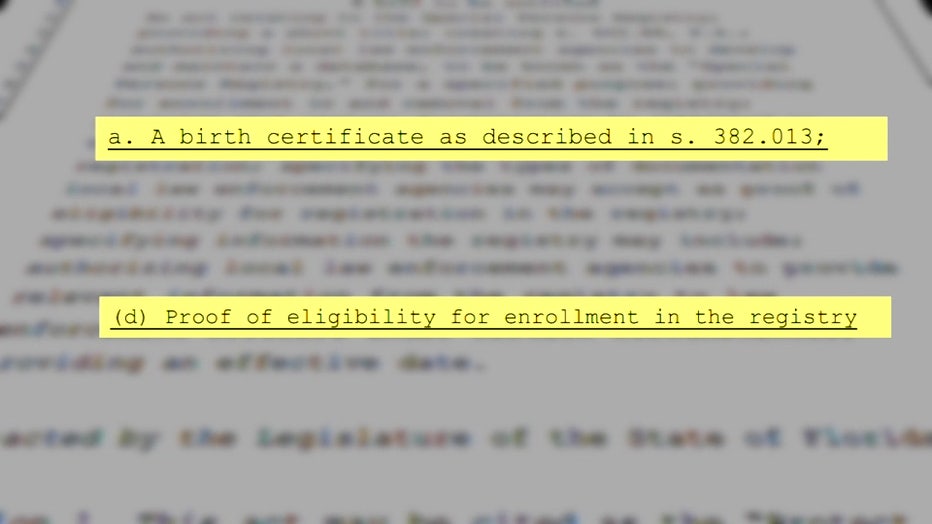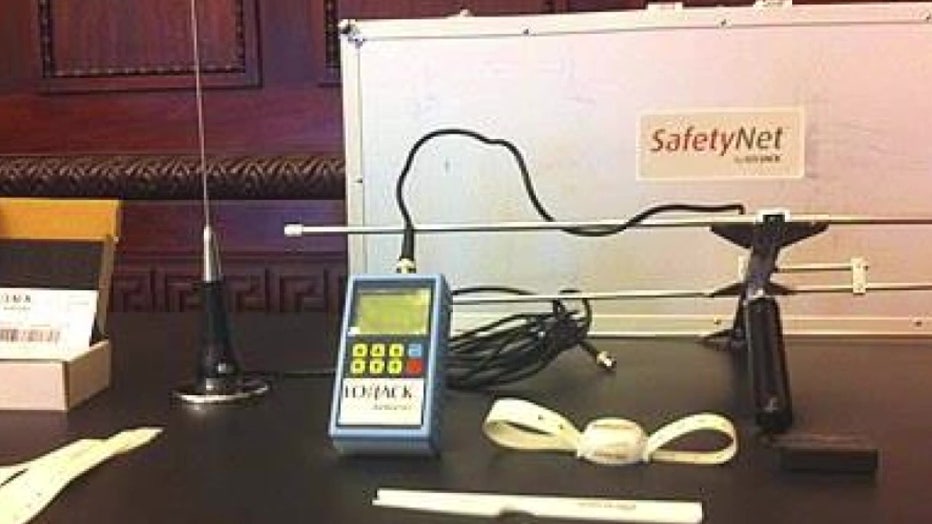New disabilities registry may be 'game-changer' for Florida law enforcement agencies
TAMPA, Fla. - A new state law aims to improve interactions between law enforcement and people with developmental or psychological disabilities.
The Protect Our Loved Ones Act, which went into effect Monday, gives local law enforcement agencies in Florida permission to create a database for people with special needs. An individual, or their loved one if they’re not able to, can submit their information if their local law enforcement agency creates a registry.
This includes, but isn’t limited to, people with dementia, Alzheimer’s, and autism. Information about an individual’s condition and contact information will be included in the registry.
Agencies across the Bay Area have similar programs. The Hillsborough County Sheriff’s Office uses SafetyNet. It’s a program that uses GPS bracelets to help find people with cognitive conditions who are registered with SafetyNet. The Pinellas County Sheriff’s Office launched Respond With Care last year which helps identify people with special needs.
VIDEO: Hillsborough County deputies use tracking bracelet to locate missing 9-year-old with autism
Law enforcement officers say the database is a game-changer for how they respond to cases involving individuals with these conditions.

A new Florida law gives local law enforcement agencies permission to create a registry for those with developmental or psychological disabilities.
"For us to know just coming across somebody, we may not have all of the information that we need, and this registry helps us know exactly and specifically what this person’s needs are," stated Lieutenant Paul Bloom of the Marion County Sheriff’s Office.
RELATED: New Florida laws going into effect in 2024
"If there is something that helps us narrow down our search or provide information on this person that may help us. For instance, some autistic children are drawn to water. There may be some notes there on the registry that says this child is lost, they may be drawn to water, so we want to go look there first," Bloom explained.

HCSO uses a program called Safety Net, a program that uses GPS bracelets to help find people with cognitive conditions who are registered with SafetyNet.
Individuals in the database can also ask to have their names removed.
There’s also legislation this upcoming session that’s aimed at better training law enforcement to interact with individuals with Alzheimer’s, dementia, and other similar conditions.
The Florida Department of Law Enforcement would work with the Department of Elder Affairs to develop the training.


